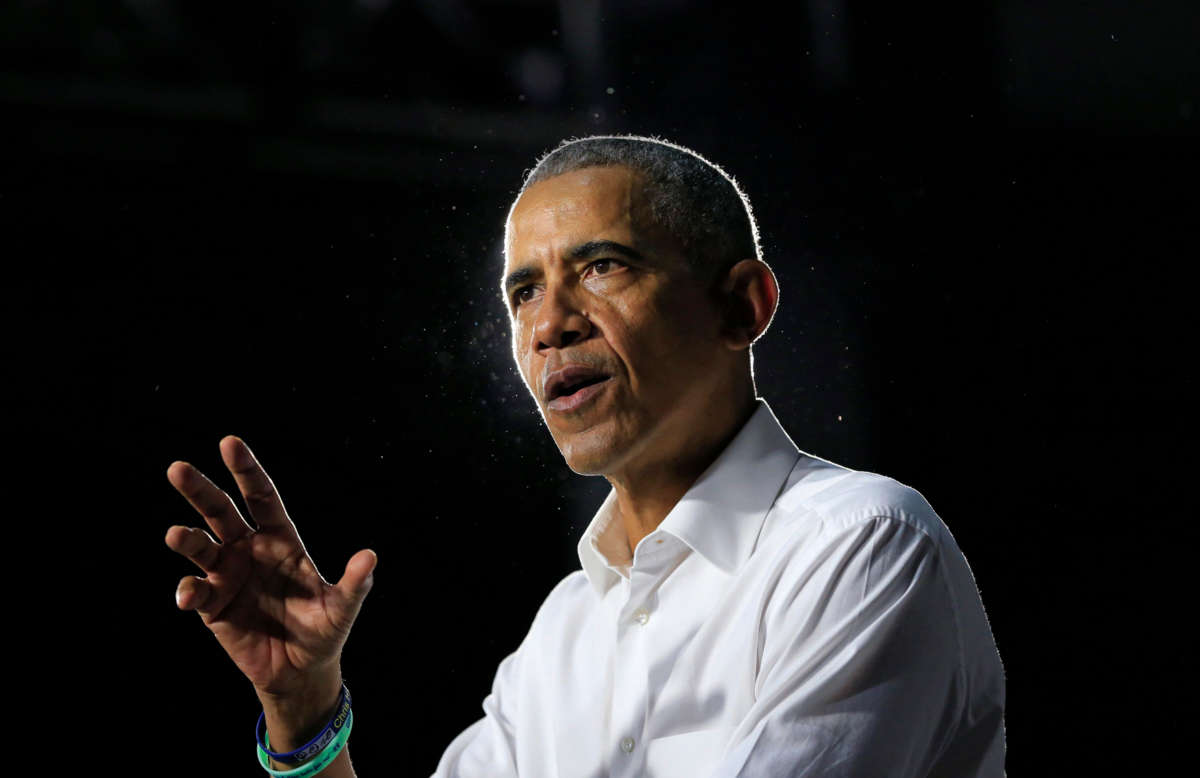On Mother’s Day, President Donald Trump launched a “tweetstorm” against his predecessor, former President Barack Obama, in part for criticisms the latter made over the weekend about the current commander in chief.
While speaking during a conference call to members of the Obama Alumni Association — around 3,000 individuals who once served in his administration — the former president made clear his misgivings and doubts of Trump being able to lead during the coronavirus crisis.
Obama urged his former staff members to support presumptive Democratic Party presidential nominee Joe Biden, and had harsh words for Trump.
“What we’re fighting against is these long-term trends in which being selfish, being tribal, being divided, and seeing others as an enemy — that has become a stronger impulse in American life,” Obama said on the call on Friday.
That mindset is “part of the reason why the response to this global crisis has been so anemic and spotty,” Obama explained.
The current crisis “would have been bad even with the best of governments,” he elaborated. “It has been an absolute chaotic disaster when that mindset — of ‘what’s in it for me’ and ‘to heck with everybody else’ — when that mindset is operationalized in our government.”
Although Trump had other criticisms about Obama during his marathon-esque tweeting on Sunday, he used language that suggested the former president’s criticisms were scandalous in their own right. After quoting another Twitter user who was friendly to the current president, Trump weighed in by saying, “He got caught, OBAMAGATE!” about the matter.
He got caught, OBAMAGATE! https://t.co/oV6fum0zIS
— Donald J. Trump (@realDonaldTrump) May 11, 2020
Trump is suggesting that Obama violated a protocol that dictates how former presidents should behave, particularly when it comes to the work of those who follow after them. Indeed, Obama’s own immediate predecessor, former President George W. Bush, stayed silent on the sidelines during Obama’s time in office. However, that protocol hasn’t always been followed, and while controversial for a former president to discuss the actions of a current chief executive, it isn’t as uncommon as Trump makes it seem.
Indeed, a number of former presidents have weighed in on the actions of those that came later, as noted by The New York Times. For example, former President Jimmy Carter once described the Bush administration as “the worst in history” because of its foreign policy decisions. Gerald Ford also had a negative viewpoint of those decisions, too, though his opinions only became public after his death. Bush’s father, former President George H.W. Bush, was also critical of Bill Clinton in the 1990s over the latter’s positions on Haiti.
Most famously, Theodore Roosevelt, upon exiting the presidency and supporting his successor William Howard Taft in 1908, had such an extreme bit of buyer’s remorse that he even tried to usurp the Republican nomination from Taft in 1912. When that didn’t work, Roosevelt ran on the Progressive Party’s presidential ticket, a move that resulted in helping Democratic Party nominee Woodrow Wilson win the election that year.
Trump’s incredulous reaction toward Obama may be based on an informal rule prohibiting former presidents from weighing in on every little thing that happens for the current administration. Yet, if an action or series of actions is egregious enough to warrant criticism, it’s not unheard of for former leaders to speak up against what’s happening. That appears to be what Obama was doing on Friday.
A terrifying moment. We appeal for your support.
In the last weeks, we have witnessed an authoritarian assault on communities in Minnesota and across the nation.
The need for truthful, grassroots reporting is urgent at this cataclysmic historical moment. Yet, Trump-aligned billionaires and other allies have taken over many legacy media outlets — the culmination of a decades-long campaign to place control of the narrative into the hands of the political right.
We refuse to let Trump’s blatant propaganda machine go unchecked. Untethered to corporate ownership or advertisers, Truthout remains fearless in our reporting and our determination to use journalism as a tool for justice.
But we need your help just to fund our basic expenses. Over 80 percent of Truthout’s funding comes from small individual donations from our community of readers, and over a third of our total budget is supported by recurring monthly donors.
Truthout has launched a fundraiser to add 500 new monthly donors in the next 10 days. Whether you can make a small monthly donation or a larger one-time gift, Truthout only works with your support.
